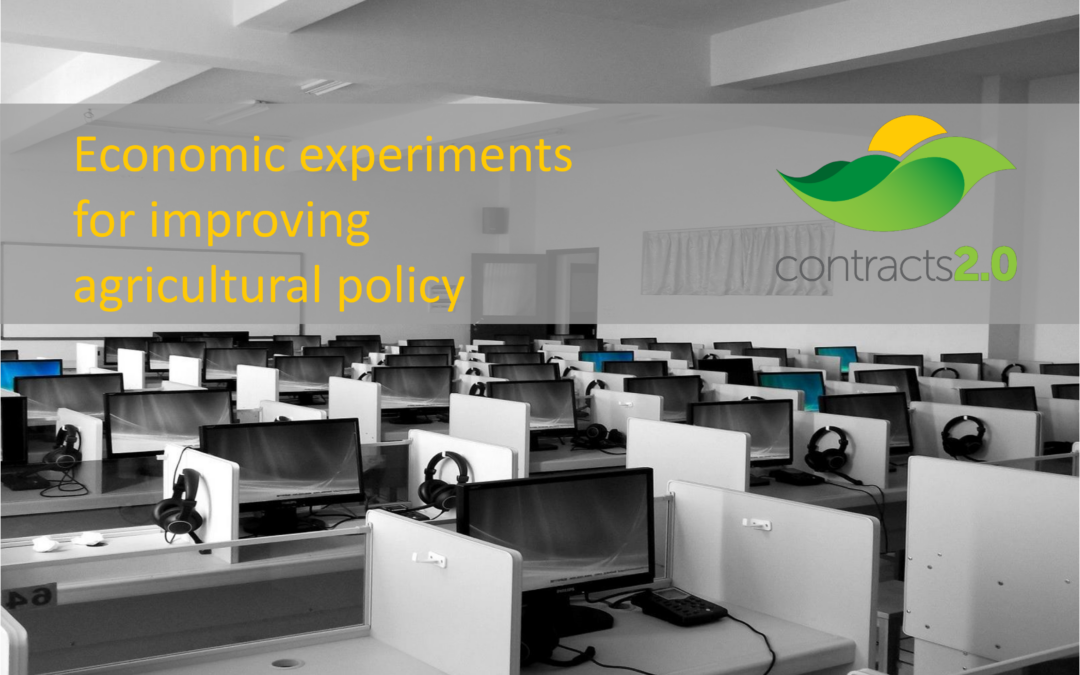The EU’s Common Agricultural Policy (CAP) is constantly evolving. Its evaluation tools must develop concurrently. Including economic experimentstypically use (cash) incentives to study economic decision-making under controlled conditions in abstract (laboratory) or somewhat contextualised (field) settings. More in the toolset would be a valuable complement to capture farmers’ behavior and policy acceptance. Economic experimentstypically use (cash) incentives to study economic decision-making under controlled conditions in abstract (laboratory) or somewhat contextualised (field) settings. More are highly effective for policy evaluationPolicy evaluation uses a range of research methods to systematically investigate the effectiveness of policy interventions, implementation and processes, and to determine their merit, worth, or value in terms of improving the soci... More. They allow testing new policies before implementation, provide evidence on their effects, and identify factors influencing policy outcomes.
As part of the Research Network of Economics Experiments for CAP evaluation (REECAP), Contracts2.0-collegue Jens Rommel from the Swedish University of Agricultural Sciences contributed to a newly published article in the EuroChoices Journal. “Can Economic Experiments Contribute to a More Effective CAP?,” the authors ask. They examine experiments use in agricultural policy research and discuss their potential to help policy-makers understand farmer decision-making processes better.
What are economic experimentstypically use (cash) incentives to study economic decision-making under controlled conditions in abstract (laboratory) or somewhat contextualised (field) settings. More?
Experiments are situations that allow for the study of decisions in controlled and reproducible environments. Like medical trials, where patients randomly receive medicine or a placebo, farmers are randomly assigned to different “treatments”. Treatments can, for example, simulate situations with and without CAP measures or include alternative measures’ designs. Comparing decisions in the treatments, researchers can isolate the causal impact of the policy and the relative performance of design alternatives.
Advantages for policy evaluationPolicy evaluation uses a range of research methods to systematically investigate the effectiveness of policy interventions, implementation and processes, and to determine their merit, worth, or value in terms of improving the soci... More
That way, experiments provide answers in a short amount of time and at much lower costs than, for example, trial and error in the “real world” would before the policy is implemented. As experiments are based on farmers’ preferences policy design and related incentives can flexibly be adjusted in advance. The use of control groups ensures to distinguish responses to different policy designs from policy effects and external factors.
Current agricultural policy simulators assume profit-maximizing behaviors only. Economic experimentstypically use (cash) incentives to study economic decision-making under controlled conditions in abstract (laboratory) or somewhat contextualised (field) settings. More often include cultural and other factors, which can generate profound insights into farmers’ complex decision-making processes.
Including economic experimentstypically use (cash) incentives to study economic decision-making under controlled conditions in abstract (laboratory) or somewhat contextualised (field) settings. More in the policy evaluationPolicy evaluation uses a range of research methods to systematically investigate the effectiveness of policy interventions, implementation and processes, and to determine their merit, worth, or value in terms of improving the soci... More toolbox
Experimental approaches still need to find their place within the policy evaluationPolicy evaluation uses a range of research methods to systematically investigate the effectiveness of policy interventions, implementation and processes, and to determine their merit, worth, or value in terms of improving the soci... More cycle. Collaborations between stakeholders involved in agricultural policy-making and research will be vital to ensure that economic experimentstypically use (cash) incentives to study economic decision-making under controlled conditions in abstract (laboratory) or somewhat contextualised (field) settings. More will find their place in the CAP evaluation toolbox to support a more effective CAP development.
For more information, see the original article: https://onlinelibrary.wiley.com/doi/full/10.1111/1746-692X.12324


